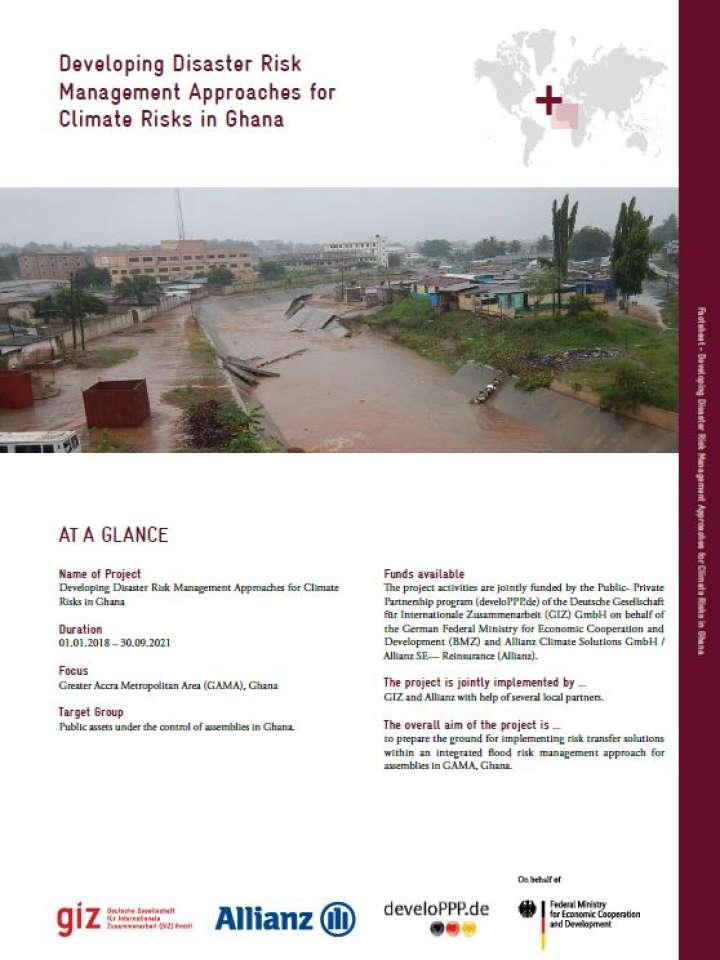Developing disaster risk management approaches for climate risks in Ghana
Disasters – mainly induced by climate change – and their associated damages severely impact people around the world, making it imperative to find strategies to manage disasters more holistically. The aim of this urban resilience project in the Greater Accra Metropolitan Area (GAMA) was to prepare the ground for implementing risk transfer solutions for public assets within an integrated flood risk management approach for municipalities. The project was jointly implemented by the Strategic Partnership between Gesellschaft für Internationale Zusammenarbeit (GIZ) and Allianz Re in collaboration with three Ghanaian municipalities from 2018-2021. In this context, Integrated Disaster Risk Management (IDRM) was used to improve resilience through a cycle of risk analysis, prevention and mitigation, preparedness, and risk transfer solutions.
This factsheet outlines how various activities prompted district authorities to consider risk transfer as a tool in their IDRM strategy. Implemented prevention measures included flood risk data collection, measurement and hazard modelling that were used to compile risk profiles and cost-benefit analyses for individual assets. Another pillar of the project concerning preparedness was the identification and implementation of flood risk preparation measures at the local level. This encompassed the design, simulation and monitoring of contingency plans and standard operating procedures through capacity building and collaboration. All this groundwork enabled Allianz Re to design a flood risk insurance product for publicly managed assets, such as schools or markets. Towards the end of the project, GIZ also supported the regulator to facilitate a sandbox approach for the designed insurance product.
Explore further
